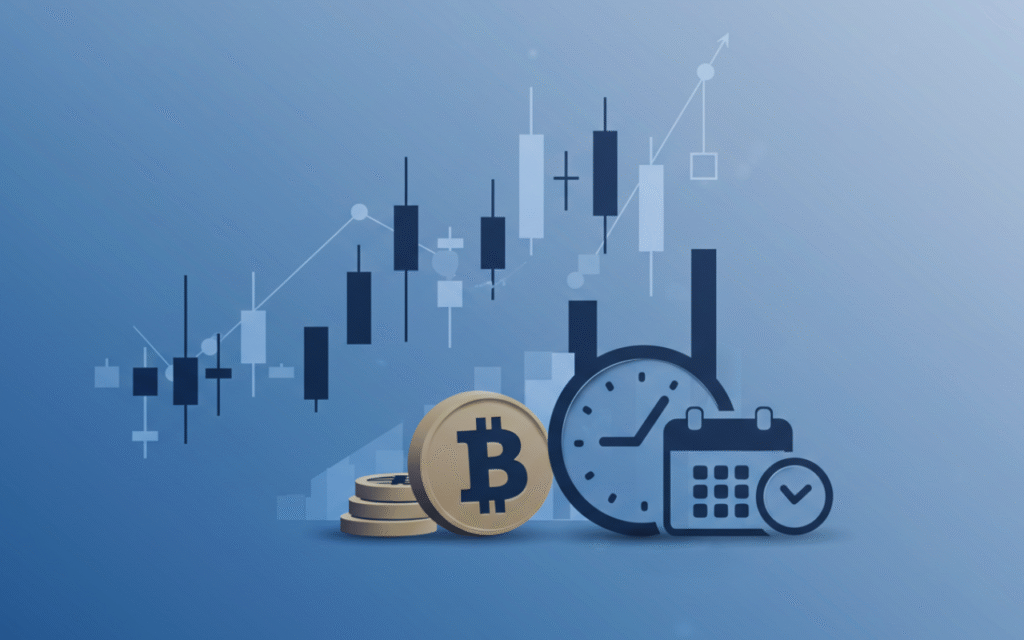The world of finance is ever-evolving, and as we inch closer to 2025, one topic that continues to capture the attention of investors and crypto enthusiasts alike is the relationship between stock market futures and Bitcoin prices. Both markets are dynamic and highly sensitive to global economic trends, but how could the performance of stock market futures influence the price of Bitcoin in the coming years?

Understanding Stock Market Futures
Before we connect the dots, let’s quickly break down what stock market futures are. Futures are contracts that allow traders to buy or sell an asset at a predetermined price on a specific future date. They’re often used by investors to hedge against risks or speculate on price movements. Stock market futures, in particular, reflect expectations of how major stock indices like the S&P 500, Nasdaq, or Dow Jones will perform.
These futures are widely regarded as indicators of market sentiment. If they’re trending upward, it usually signals optimism about the economy. Conversely, falling futures often point to bearish sentiment and potential economic downturns.
Bitcoin [The Digital Wildcard]
Bitcoin, on the other hand, operates in a completely different realm. As the first and most well-known cryptocurrency, Bitcoin is decentralized and not directly tied to traditional financial systems or government policies. However, over the years, Bitcoin has become increasingly intertwined with broader market trends due to institutional adoption and growing interest from traditional investors.
Whether seen as “digital gold” or a speculative asset, Bitcoin’s price tends to react to macroeconomic factors like inflation, interest rates, and market uncertainty. This is where stock market futures come into play.
The Correlation Between Stock Market Futures and Bitcoin
Historically, Bitcoin has had a complex relationship with traditional markets. In its early years, Bitcoin was largely uncorrelated with stocks or other asset classes. However, as institutional players entered the crypto space and Bitcoin became more mainstream, its price movements began to mirror those of traditional markets during certain periods.
For example, during times of economic uncertainty like the COVID-19 pandemic in 2020, both Bitcoin and stock markets experienced sharp sell-offs before recovering. This suggests that Bitcoin is no longer entirely isolated from global financial trends.
→ Stock market futures, as a gauge of investor sentiment, can influence Bitcoin prices in several ways:
- Risk-On vs. Risk-Off Sentiment: When stock market futures are bullish, investors may adopt a “risk-on” mindset, seeking higher returns in alternative assets like Bitcoin. On the other hand, bearish futures often trigger a “risk-off” sentiment, causing investors to move toward safer assets like bonds or cash, potentially leading to a drop in Bitcoin prices.
- Institutional Trading Strategies: Many institutional investors now include both stocks and Bitcoin in their portfolios. If stock market futures signal a downturn, these investors might reallocate their funds away from riskier assets like Bitcoin to stabilize their portfolios.
- Macroeconomic Signals: Stock market futures often respond to macroeconomic events such as Federal Reserve policy changes or geopolitical tensions. These same factors can also impact Bitcoin prices. For instance, if futures fall due to rising interest rates, Bitcoin might also face downward pressure as borrowing costs increase and liquidity tightens.
What Could Happen in 2025?
Fast forward to 2025, what might this connection between stock market futures and Bitcoin look like? While no one has a crystal ball, we can explore a few potential scenarios based on current trends:
1. Increased Correlation
As institutional adoption of Bitcoin grows, its price could become even more closely tied to traditional financial markets. By 2025, if stock market futures indicate strong economic growth, we might see Bitcoin rally alongside stocks as investors seek higher returns across all asset classes.
On the flip side, if futures point to economic challenges like a recession or rising unemployment, Bitcoin could face downward pressure as risk-averse behavior takes hold.
2. Decoupling from Traditional Markets
There’s also the possibility that Bitcoin becomes less correlated with stock markets by 2025. This could happen if Bitcoin solidifies its role as “digital gold” and a hedge against inflation. In this scenario, Bitcoin might perform well during periods of economic uncertainty (reflected by falling futures) as investors flock to it as a safe haven asset.
3. Regulatory Impact
Regulation will likely play a significant role in shaping Bitcoin’s relationship with traditional markets by 2025. If governments introduce clearer guidelines for cryptocurrencies and integrate them further into the financial system, Bitcoin may become more sensitive to stock market trends. Conversely, stricter regulations could stifle institutional involvement and weaken the connection between Bitcoin and stock market futures.
4. Technological Advancements
By 2025, advancements in blockchain technology and broader adoption of cryptocurrencies could make Bitcoin less speculative and more stable. If this happens, its price movements might be less reactive to short-term shifts in stock market futures and more driven by long-term fundamentals like network growth and utility.
Key Takeaways for Investors
→ If you’re wondering how to navigate these potential dynamics in 2025, here are a few friendly tips:
- Stay Informed: Keep an eye on both crypto markets and traditional financial indicators like stock market futures. Understanding the bigger picture will help you make more informed decisions.
- Diversify: Whether you’re investing in stocks, Bitcoin, or other assets, diversification is key to managing risk in an uncertain world.
- Think Long-Term: While short-term price movements can be influenced by factors like stock market futures, try to focus on Bitcoin’s long-term potential as an innovative technology and store of value.
- Be Prepared for Volatility: Both Bitcoin and stock markets can be unpredictable. Make sure your investment strategy accounts for potential ups and downs.
Conclusion
The interplay between stock market futures and Bitcoin prices is an exciting area to watch as we approach 2025. While there’s no definitive answer to how these two markets will influence each other, it’s clear that their relationship is becoming increasingly complex.
Whether you’re a seasoned investor or just starting your crypto journey, staying curious and adaptable will be your greatest advantage in navigating this ever-changing landscape. Here’s to a future filled with opportunity and maybe a little less volatility.



![[Tesla Stock vs. Bitcoin] Which One Leads the Market in 2025?](https://mineatech.com/wp-content/uploads/2025/06/tesla-stock-vs-bitcoin-which-one-leads-the-market-in-2025-348x215.png)